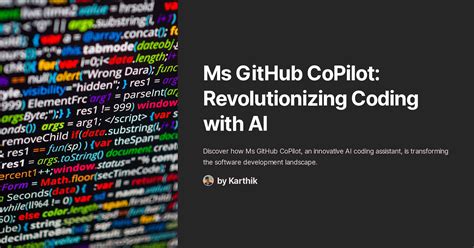The recent buzz around GitHub Copilot Workspace’s capabilities offers an exciting glimpse into the potential future of code generation tools. Copilot Workspace, as a concept, sets out to blend advanced code generation with the traditional tasks of a developer, providing a seemingly magic-like ability to amplify productivity without completely eliminating the developer’s role. This offering from GitHub hints at a future where much of the grunt work is done by machines, yet the skeleton needs human input for thoughtful creation and iteration of ideas. However, one must ponder if the seamless integration and ease of use may undermine the essential skills that developers have honed over years. Through automating the flow of code creation, there’s a risk that new developers might never learn the rigorous problem-solving and debugging skills that are hallmarks of seasoned programmers.
The efficacy of such tools as GitHub Copilot has stirred much debate. For seasoned developers, the tool serves as a super assistant, smartly navigating through lines of code and offering suggestions that accelerate mundane tasks. But what does it mean for the neophytes in the industry? When a tool takes over foundational practices, there’s a potential clash between upskilling and dependency. This arises from a lack of deep understanding as developers might lean heavily on suggestions without grasping the underlying principles. The feedback from the community reflects a spectrum of reactions, where some embrace the tech as a significant leap forward, while others view it cautiously, mindful of the potential crutches it sets for future developers.
Critically, GitHub Copilot’s Workspace, as engaging as it appears, introduces another layer of contemplation about AI’s role in creative tasks. The user experience (UX) design of such platforms is paramount. A poorly designed UX can mislead users with inappropriate suggestions. It’s essential for UX developers to clearly define the tool’s purpose—augmenting human capabilities rather than replacing them. GitHub’s approach to continuously evolve based on user feedback and the adaptation in real-world testing will significantly determine its place and impact on the tech landscape.
Moreover, the introduction of such advanced AI tools raises questions about the privacy and security of the code written. As codes get pushed through AI systems, there’s a perennial fear of sensitive data being mishandled or inadvertently exposed. GitHub’s protocols for user data security, especially when integrating such tools, will be under scrutiny. This demands a rigid framework where data integrity and privacy need to be at the forefront, ensuring developers that their intellectual efforts remain confidential and protected.
In summary, while GitHub Copilot Workspace exemplifies a significant stride towards futuristic coding, it encapsulates a broader debate on AI’s impact on employment and skills in the tech industry. The balance between automated assistance and maintaining necessary coding skills is delicate. The success of GitHub Copilot could either pave the way for more intelligent coding tools that responsibly enhance developer skills or could set a precedent for tools that inadvertently diminish the craftsmanship of coding. As such, the broader implications of GitHub Copilot and similar technologies must be approached with meticulous care and thoughtful integration into the developers’ workflows.


Leave a Reply